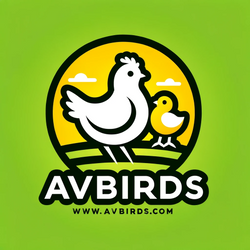Let’s talk about why raising free range chickens can be one of the best decisions you make for your backyard flock. Ever dreamed of gathering fresh eggs for breakfast while watching your pasture-raised birds pecking happily at bugs and grass? You’re in the right place. In this post you’ll discover the perks—from richer yolks to natural pest control—and learn how to get started with minimal fuss.
Explore Dietary Advantages
Free-ranging flocks get to forage for a diverse menu—bugs, grass, herbs, even small seeds. That broader diet boosts their nutrition and keeps them happily pecking all day.
Foraging Freedom
- Chickens scratch and peck in the soil, finding protein-rich insects and worms
- Fresh greens and herbs add flavor and vitamins to their diet
Herb And Bug Benefits
When hens roam freely they self-supplement feed with live prey and vegetation. According to Homesteaders of America, this variety makes for healthier birds and happier hens overall (Homesteaders of America). You’ll notice more activity and fewer dull days in your coop.
Reduce Feed Expenses
One of the quickest wins with free-range birds is a drop in feed costs. Since your girls are grazing for part of their diet, you’ll buy less commercial feed each month.
- They spend daylight hours foraging, then eat pellets in the evening
- Natural grit picked up outdoors helps break down feed efficiently
- Less wasted scratch and fewer empty feeders
Over the course of a season, those savings really add up—you might cut your feed bill by 20–30 percent, depending on pasture quality.
Enhance Egg Quality
Nothing beats cracking open an egg with a deep-yellow or orange yolk, right? Pasture-raised hens consistently lay richer, more nutrient-dense eggs.
Yolk Color And Nutrition
Eggs from free-ranging hens often have yolks bursting with vitamins A, D, and E, plus healthy fats. A study in Nova Scotia even found free-range eggs higher in cysteine and lower in cholesterol than conventional eggs (Healthline).
Pick Your Layers
If you want classic brown eggs, check out our brown egg layers for sale. Looking for colored shells—blue, green, or chocolate? Browse colored egg layers blue green chocolate.
Improve Flock Health
Giving your birds room to roam isn’t just about fun—it’s a prescription for better health.
Sunlight And Exercise
Fresh air and sunshine help hens synthesize vitamin D, strengthening bones and immune function. Free-range birds tend to suffer fewer respiratory issues than those in confinements.
Natural Grit Benefits
When they scratch around outdoors, hens swallow small pebbles and sand that grind feed in their gizzard. That means less supplemental grit to buy and smoother digestion for your flock.
Enhance Coop Cleanliness
Since your hens spend most of their day outside, your coop stays drier and cleaner. A less crowded indoor space cuts down on ammonia buildup and moisture, so you can:
- Scoop droppings less often
- Replace bedding on your schedule, not daily
- Keep predators away with fewer odors
Cleaner living quarters translate to fewer parasites and a happier flock.
Control Pests Naturally
Tired of overrun garden beds or a swarm of flies around your chicken run? Free-range birds are nature’s pest controllers.
- They gobble up ticks, beetles, and grasshoppers
- Chickens eat fly larvae found in manure, cutting fly populations
- No need for chemical sprays—your birds do the work
Let your hens patrol the yard and watch those pesky bugs vanish.
Understand Label Definitions
The “free range” label can be confusing. Different standards lead to different living conditions. Here’s a quick comparison:
| Label | Outdoor Space | Key Requirements |
|---|---|---|
| USDA Free Range | No minimum sq ft, pop-hole ok | Must have some outdoor access |
| Certified Humane | 2 sq ft per bird, 6+ hrs/day | Outdoor access plus welfare standards |
| Pasture Raised | 108 sq ft per bird, rotated fields | Year-round outdoor access, mobile housing |
USDA Vs Certified Humane
USDA “free range” simply means hens can go outside, even through a small pop-hole. Certified Humane adds space and time guarantees so your birds actually enjoy the outdoors (Certified Humane).
Pasture-Raised Standards
If you want top-tier welfare and nutrition, look for pasture-raised programs. They require at least 108 square feet per hen, rotated fields, and predator-safe housing, ensuring your flock thrives.
Get Started Easily
Ready to bring free-range birds home? Let’s walk through the basics.
Choose Your Flock
- Browse day-old chicks for sale if you love a project
- Pick up older birds via started pullets for sale for earlier egg production
- Use our breed selector or chicken breed finder to match birds to your climate and goals
Prep Your Setup
You don’t need a sprawling farm to start—just a secure coop, a fenced run, and the right gear:
- Chick brooder supplies and heat lamp for hatchlings
- Chicken feeders and waterers sized for your flock
- Incubators and hatching accessories if you’re hatching your own
- Arrange reliable delivery through shipping live chicks
With that in place, you’ll be collecting eggs and enjoying your free-range flock in no time.
Key Takeaways
- Free-range chickens forage for a varied diet, boosting health and happiness
- You’ll save on feed, grit, and coop cleaning time
- Richer yolks and stronger birds come from sunshine, exercise, and diverse forage
- Natural pest control lets your hens handle ticks, flies, and beetles
- Clear label definitions help you choose between USDA free range and pasture-raised programs
- Starting is easy—pick chicks or pullets, prep gear, and enjoy fresh eggs quickly
Why not start today? Browse breeds, set up your coop, and see how raising pasture-free flocks transforms your backyard into a lively, sustainable space. Have a free-range tip? Share it below so others can benefit too.

